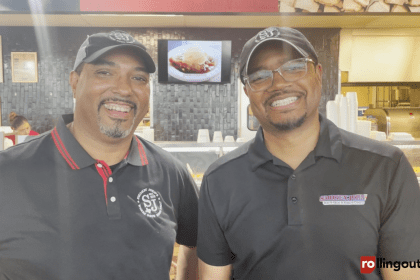
As entrepreneur and chef Carl Redding begins each day at his Atlantic City, N.J.- based restaurant, Redding’s, he remembers the power of faith. Without faith, Redding may not be the success that he is today. After operating for 10 years one of Harlem’s most popular and enduring restaurants, Amy Ruth’s, named after his grandmother, Redding sold the restaurant. It was a decision that he expresses was misguided and motivated by his growing ego. After two failed restaurants, he rediscovered his faith. Now this former Marine and chief of staff to the Rev. Al Sharpton has made an impressive return to the culinary world.
You are recently emerging from a comeback and you credit much of your resurgence to faith. How have you incorporated that into your business?
When I sold Amy Ruth’s I was going through a period in life where I felt I was very cocky. When I ended up with two failed businesses, I knew then that I couldn’t go forward without God. Now I have a successful business in Atlantic City. I don’t have those celebrity trappings in Atlantic City that I had in Harlem, so I sit down with my customers. Whereas in Harlem I didn’t have to do that ‘cause I was a quasi celebrity chef. Now God [has] challenged me to talk to everybody, and that’s what I try to focus on.
What advice do you have for other entrepreneurs about branding?
You need to try to come up with ways that will enhance the restaurant. I am always trying to find new ways to reinvent myself. For example, in my restaurants every year I do a paint job and change pictures on the wall to make it look refreshing.
Atlantic City isn’t known for soul food restaurants. What strategies did you use to generate enough interest from people to patronize your establishment?
The plan to get people to come to the restaurant was some type of media strategy. Percy Sutton was one of the greatest businessmen of my time. He told me to create a buzz with a gimmick and James Brown told me the same thing. So I went on TV in the Philadelphia area and I created the chittlin’ cheese steak. It [created] a buzz that got people to sample the food and come back for more.















